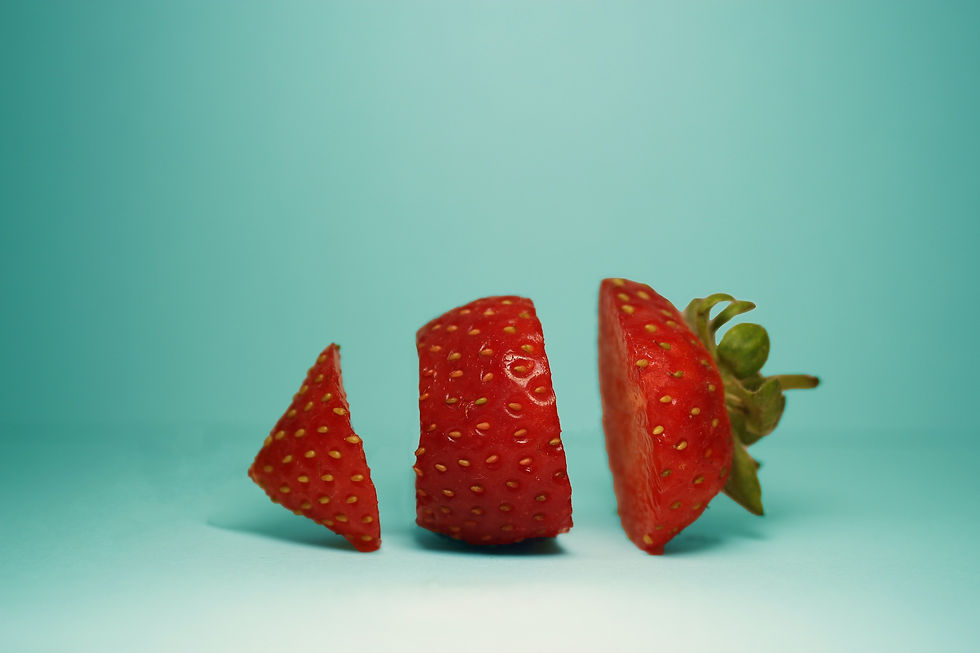If You've Ever Gone on a Diet, Read This
- Paige Smathers

- Dec 21, 2016
- 3 min read

If you've ever dieted, you're familiar with the pendulum swing you experience when you're trying to stick to a rigid set of food rules. The pendulum swings from restriction and deprivation over into overeating and bingeing. One day you're "good" the next day you're "bad" and your self-confidence (and likely your health, too) have suffered as a result.
The truth is, dieting DOESN'T WORK! It leads to poorer health outcomes than simply taking really good care of yourself without assigning your success or failure to a number on the scale or perfection at sticking to a rigid food plan. After all, eating is one area of self-care we do three to six times per day! There are many chances within one day to take great care of ourselves both physically and mentally with our eating and our relationship with food.
There is growing evidence supporting a paradigm shift in how we, as healthcare providers and as members of our society, create a healthy lifestyle. There's much more to health than a number on the scale.
Many people associate healthy eating with dieting. You're either on a diet and eating healthfully or you're not on a diet and having a free-for-all. But, it doesn't need to be so extreme. There's a concept called intuitive eating that many people have found immense freedom and peace implementing its principles into their lives. At its most basic level, intuitive eating encourages people to let go of food rules and start honoring their own body's natural ability to regulate hunger, fullness and weight.
Although intuitive eating is a powerful, health-promoting and beautiful concept, there are many people who have struggle to implement it.
The most common way people struggle with intuitive eating is when they turn it into an all-or-nothing, rigid set of rules and expect perfection—in other words, people struggle with intuitive eating when they turn it into a diet.
All fad diets have common elements. Diets encourage people to measure their success on the scale, they promote perfection and strict adherence to their rules (which are often completely off-base scientifically, by the way), they aren't sustainable long-term, and dieters often engage in all-or-nothing thinking during the diet and afterwards.
Let's contrast that with intuitive eating. Intuitive eating encourages people to measure their success based on behavior change and an improved relationship with food. It also promotes finding joy in eating and honoring cues of hunger and fullness with room for imperfection. Intuitive eating is sustainable long-term because it's all about finding ways to interact with food that's pleasurable, life-enhancing and nutritious.
It can be very difficult to walk away from a dieting paradigm to the non-dieting world of intuitive eating because dieting is so ingrained in our culture. But, it's worth the journey. When you walk away from dieting there's peace, freedom, joy and truly living life to its fullest! And when you do walk away from dieting, be sure you don't turn your new food philosophy into another diet—they don't work!
--
Many people feel that adopting positive nutrition and intuitive eating is a giant leap of faith. It often feels too scary or abstract to take the leap of faith so many people end up just feeling stuck. Through the years, I've sat across from hundreds of people in tears because they know diets don't work but they don't know how to fully embrace intuitive eating. That's why I've created the Positive Nutrition online course. Check it out to see if it might be a good fit for you!
This article was originally published on ksl.com.







Kaiser OTC benefits provide members with discounts on over-the-counter medications, vitamins, and health essentials, promoting better health management and cost-effective wellness solutions.
Obituaries near me help you find recent death notices, providing information about funeral services, memorials, and tributes for loved ones in your area.
is traveluro legit? Many users have had mixed experiences with the platform, so it's important to read reviews and verify deals before booking.
Thank you! sharing your knowledge with us. I’m impressed by the information that you have on this blog, Actually, I’m looking for the same information on the internet how we use diet after pregnancy. Same as your blog another one have blog is baby swing club, I read reviews of customers on this site, such an amazing, the customer gives positive reviews. I recommend you to visit this website.